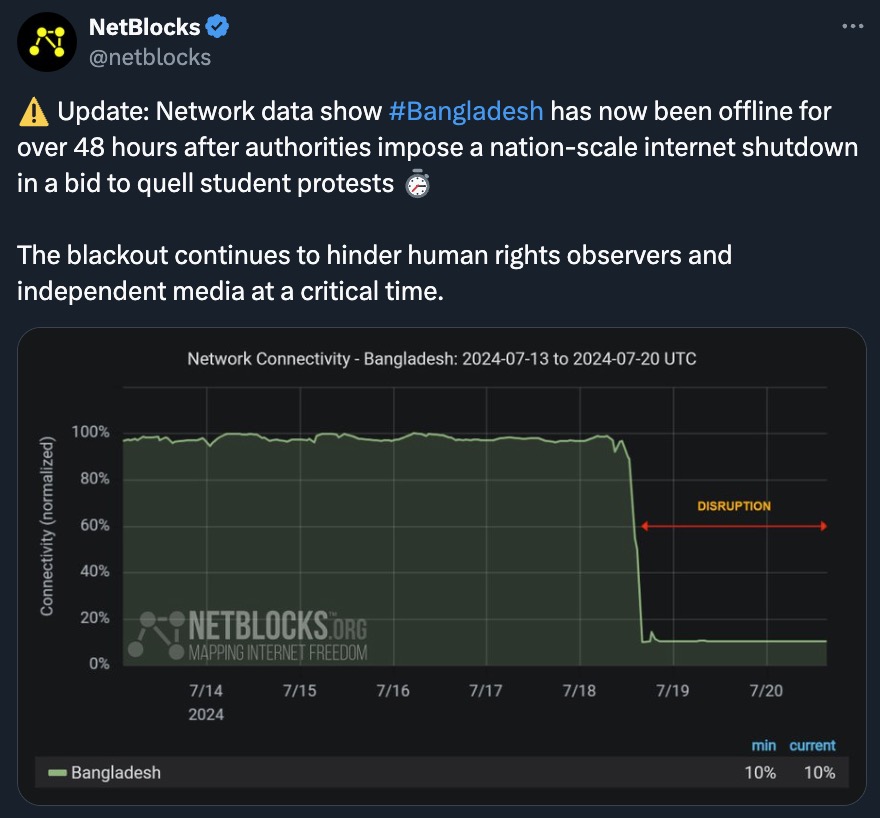In Bangladesh, authorities have implemented a sweeping internet blackout as student-led demonstrations intensify, demanding changes to the public sector employment quotas. The focus of the protests is a contentious policy reserving a third of government roles for family members of the veterans of the 1971 War of independence. This week, escalating tensions saw protestors ransack the BTV state broadcaster’s headquarters in Dhaka, resulting in significant damage and numerous casualties.
According to AFP, the ongoing conflicts have already claimed the lives of at least 32 individuals. The situation deteriorated notably on Thursday when confrontations between protestors and law enforcement resulted in 17 fatalities. Amid the chaos, many were reportedly trapped inside the BTV offices following the protesters’ aggressive acts.

To regain control and mitigate the spread of what it views as potential misinformation, the Bangladeshi government has completely cut off internet and telephone services across the nation. This drastic measure aligns with strategies observed in other South Asian countries under similar circumstances. NetBlocks confirmed the extensive nature of this internet suspension, announcing on Twitter on July 18, 2022, that Bangladesh is experiencing a “near-total national internet shutdown.”
Related: Obama’s internet kill switch
Such shutdowns are becoming an increasingly common global phenomenon, often utilized by governments to handle various crises, including protests, examinations, and elections.
Bangladesh, in particular, has a troubling record of frequent internet blackouts used to suppress political dissent and activism. At the close of 2023, the CIVICUS Monitor, which evaluates civil liberties in almost 200 nations, reclassified the civic freedoms status of Bangladesh to “closed.” This comes after the country orchestrated six internet shutdowns in just the previous year.
Despite assurances from the country’s telecommunications authority to maintain unrestricted internet access during the general elections earlier in 2024, disruptions continued, including blocking access to numerous news sites throughout the electoral process. This pattern underscores a troubling inclination towards curtailing communication and information, highlighting significant challenges to digital rights and access in the region.
EXCLUSIVE: Top Sniper Says Assassination Attempt Was Inside Job By Desperate Deep State



